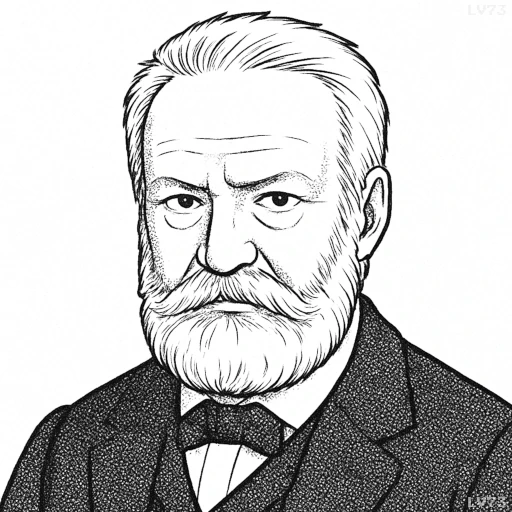“Liberation is not deliverance.”

- February 26, 1802 – May 22, 1885
- Born in France
- Author, poet, playwright
table of contents
Quote
“Liberation is not deliverance.”
Explanation
In this quote, Victor Hugo draws a distinction between two concepts—liberation and deliverance—which, although they may seem similar, are fundamentally different in meaning. Liberation refers to the act of freeing oneself or others from external control, oppression, or constraint, while deliverance implies a deeper form of salvation or rescue—often spiritual or existential—in which the individual is saved or protected from some form of suffering or danger. Hugo suggests that while liberation may offer freedom from physical or political oppression, it does not necessarily equate to the profound sense of deliverance—which is more about inner peace, fulfillment, or redemption.
This distinction speaks to the complexity of human freedom. Liberation can open the door to possibilities, but deliverance involves a deeper spiritual or personal transformation that goes beyond mere freedom from external forces. It suggests that true liberation involves not just physical or social freedom but also an inner peace and purpose that may not be immediately attained once one is freed from external constraints.
In modern terms, this quote could be understood as a reminder that freedom—whether political, social, or personal—is not enough on its own. True fulfillment and peace come from an internal transformation or growth, and that deliverance is a more holistic state, encompassing both external freedom and inner peace. Hugo’s words encourage us to recognize that true liberation involves not only the absence of oppression but the attainment of purpose and meaning in life.
Would you like to share your impressions or related stories about this quote in the comments section?

